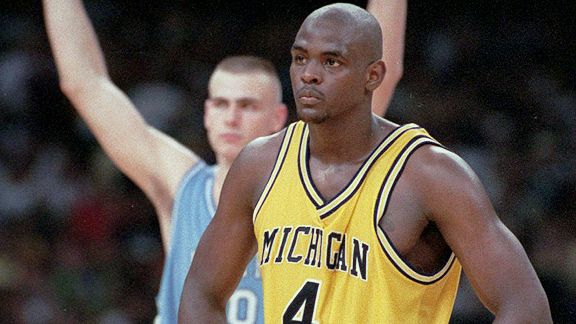Like a lot of people my first experience with money was receiving a nominal weekly stipend in exchange for doing my chores. This payment was called an 'Allowance' and with it, I'd go to Phil's - the local penny candy store - and blow it all on Jolly Ranchers and Bazooka Bubble Gum. If I owned a piggy bank, I don't remember it and if I had one, I'd have busted it open long before it was full of change.
When, as a child, our family went to Cape Cod with friends, we spent a week in Craigville Beach. I was given 20 dollars for the week. My friend Liz and I immediately went to the Craigville General Store where I promptly spent every last cent on candy. My more prudent sister chided me for squandering all my money on candy and for eating nearly all of it by the next day.
View Larger Map
As I grew older and finagled ways to earn a few bucks on my own - shoveling snow, mowing lawns and the occasional babysitting job - the money never accumulated. I can't begin to tell you what I bought. I probably ingested most of it, purchased a few cassette tapes, and a video cartridge or two for my Coleco Vision.
When I turned 16, I got a job - a real job complete with a paycheck and tax deductions - as a dishwasher at the now defunct Mansfield Depot Restaurant. I worked a few shifts a week, usually going in sometime after school - around 3 or 4pm and leaving late, after the last dinner guests had departed, the pots had been scrubbed and the floor mopped. I earned something less than $4/hr, but was nonetheless thrilled to see paychecks approaching $80.
My father made a deal with me that whatever money I saved for a car, he'd match. I opened a savings account at the local bank in town and for the first time in my life began to set money aside for a major purchase. My savings benefited from the free meals I got at the restaurant, though I am sure my dentist can attest to the fact that I was still devoting a consistent portion of my salary toward confectionery.
My father made a deal with me that whatever money I saved for a car, he'd match. I opened a savings account at the local bank in town and for the first time in my life began to set money aside for a major purchase. My savings benefited from the free meals I got at the restaurant, though I am sure my dentist can attest to the fact that I was still devoting a consistent portion of my salary toward confectionery.
After about a year, I'd saved nearly $1200 and with my dad's matching funds, purchased a 1974 Volvo 164E. I named him Ingmar Gustav Volvo Ring. He was blue and the automatic transmission slipped when shifting from 1st to 2nd gear, making a loud clunking sound that could be felt along the floor boards. The car was solid like a Volvo should be. It must have weighed as much as a circus elephant and its rear wheel drive made for atrocious winter traction. I loved it. It was truly the first time I made a direct connection between work and meaningful compensation. Alas, the money I made poured into the car in the form of gasoline and repairs.
(As an aside - a bit more on the fate of Gustav: The car lasted about a year and half until one spring evening on the way back from a Red Sox game. I was driving with three German foreign exchange students riding in the rear. I was cajoled into racing my friend Charles back to Connecticut. We sped along the Mass Pike, driving as stupidly and dangerously as only a 17 year old can. I remember the Germans in the back seat chanting, "Do a hundred, do a hundred!" And while I didn't quite reach those speeds I was going fast enough to enlarge what was already a small oil leak. As the car slowly bled oil, I failed to notice the rising temperature gauge. Finally devoid of any lubricant, the sizzling engine block revolted, seized, and threw a rod, busting a fist sized hole in the engine block. Those Germans will never forget that ride. We arranged for them to be driven home by my friend while I was relegated to calling my mom to pick me up in the dead of night in the middle of nowhere - ironically that middle of nowhere is mere minutes from where I now reside. The car was towed to a garage and then to a family friend's house. We had notions of replacing the engine, but like a lot of notions, it was a foolhardy one. The car was abandoned and for all I know Gustav's skeleton is still sitting atop a hill off a hidden drive on Mt. Hope Rd. in Mansfield Center, Connecticut.)
(As an aside - a bit more on the fate of Gustav: The car lasted about a year and half until one spring evening on the way back from a Red Sox game. I was driving with three German foreign exchange students riding in the rear. I was cajoled into racing my friend Charles back to Connecticut. We sped along the Mass Pike, driving as stupidly and dangerously as only a 17 year old can. I remember the Germans in the back seat chanting, "Do a hundred, do a hundred!" And while I didn't quite reach those speeds I was going fast enough to enlarge what was already a small oil leak. As the car slowly bled oil, I failed to notice the rising temperature gauge. Finally devoid of any lubricant, the sizzling engine block revolted, seized, and threw a rod, busting a fist sized hole in the engine block. Those Germans will never forget that ride. We arranged for them to be driven home by my friend while I was relegated to calling my mom to pick me up in the dead of night in the middle of nowhere - ironically that middle of nowhere is mere minutes from where I now reside. The car was towed to a garage and then to a family friend's house. We had notions of replacing the engine, but like a lot of notions, it was a foolhardy one. The car was abandoned and for all I know Gustav's skeleton is still sitting atop a hill off a hidden drive on Mt. Hope Rd. in Mansfield Center, Connecticut.)
When I drove trolley tours, both in Boston and Key West, a lot of my income came in the form of cash tips. This was true of my days as a waiter, too. Walking away from a shift with a hundred dollars in my pocket made me feel like I was a high roller, but after a drink or two with colleagues, I was doing the grownup equivalent of blowing all my cash on candy. But I had learned how to save a bit and when there was something I desired, I was diligent about setting aside the money to pay for it. In 1993 when I wanted to finance a vacation to New Orleans for the NCAA Men's Basketball Final Four, I squirreled away $5 bills everyday until I had several hundred dollars to pay for the trip. Over the years, I've plied the same tactic to pay for other cars, vacations, investments, gifts, a wedding, a honeymoon, and an adoption. When I was working in the corporate world, a portion of my salary was automatically deducted and put into long term savings/retirement vehicles. Increasingly my use of credit cards waned and the vast majority of my purchases were paid for with savings.

I've read a host of books on personal finance and savings - a salient point of several of them relied on putting aside 10% of gross income into compound interest bearing accounts. I loved a book called the Wealthy Barber. It spoke to me in the simplest of terms: live frugally, live below your means, pay yourself first - every month!, spend money on expertise you don't possess, and stop trying the keep up with the Joneses.
These lessons weren't instilled in me, though surely they were told to me. I try not to rue the wasted spending of my youth - indeed I got to experience a lot owing to a decided lack of frugality. But as I grow older and know the value of a dollar - how hard they are to both accrue and retain, I am resolved to teach these lessons to my son and to do so by example. I might on occasion still let a few extra dollars slip out of my palms, but only after I've put my 10% into that compound interest bearing account.
And best of all, I can still chomp down a bag of candy like I could when I was eight years-old.




No comments:
Post a Comment